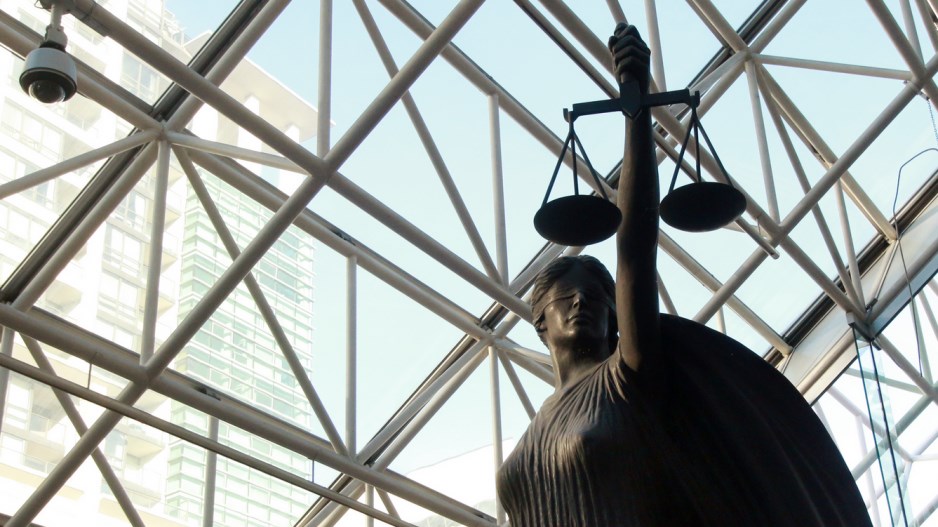Earlier this year, Research Co. and Glacier Media asked Canadians about justice. One of our most perplexing findings was the almost-even split in the perception of impartiality: 45 per cent of Canadians think the justice system treats every person fairly, while 43 per cent do not.
This month, we reviewed the sentiments of Canadians towards other entities. When we asked Canadians about the internal operations and leadership of four elements of the justice system, more than two-thirds (67 per cent) say they have confidence in their local police force. This is a slightly higher rating than what is observed for the Supreme Court of Canada (65 per cent) and the Royal Canadian Mounted Police (RCMP) (64 per cent), and significantly higher than provincial criminal courts (58 per cent).
We see some differences in the perceptions of Canadians on the two law enforcement services. B.C. boasts the highest proportion of respondents who have confidence on their local police force (73 per cent) and the lowest for the RCMP (63 per cent).
More than half of Canadians (54 per cent) say their confidence in the internal operations and leadership of the RCMP has not changed over the past five years. While only 12 per cent suggest that the service is more trustworthy now, just over one in four (26 per cent) are less confident than before – a proportion that rises to 30 per cent among men and 38 per cent among Canadians aged 55 and over.
As expected, there is a political slant. While 23 per cent of Liberal Party voters in 2021 are less confident in the RCMP’s internal operations and leadership, the numbers rise to 28 per cent among New Democratic Party (NDP) voters and to 32 per cent among Conservative Party voters. Opposition voters are more likely to believe that the situation has worsened under the current government, which could lead to crime and public safety becoming more than just a wedge issue in the next federal election.
Our individual views on law enforcement are guided by personal experience, and there are some positive indicators. More than three in five Canadians say that the police officers who operate in their community are approachable (69 per cent), respond to calls promptly (68 per cent) and can be trusted (64 per cent), and more than half (57 per cent) regard them as a source of pride.
The one area where the numbers are not particularly stellar is impartiality. Half of Canadians (50 per cent) think the police officers who operate in their community treat every person fairly, while 42 per cent believe this is “definitely” or “probably” not the case.
We see little fluctuation on age and gender on this question, but the regional breakdowns are eye-catching. Only in two provinces do we see more than half of residents endorsing the even-handedness of local police officers: Alberta (58 per cent) and B.C. (52 per cent). The proportions are lower in Saskatchewan and Manitoba (49 per cent), Ontario (also 49 per cent), Quebec (48 per cent) and Atlantic Canada (43 per cent). This means that, in most of the country, fewer than half of residents expect law enforcement officers to lack prejudice and treat everyone the same way.
Last month, a third of Canadians (33 per cent) told us that they have experienced racism during interactions with police and law enforcement. When we analyze the findings of the fairness question by ethnicity, only respondents of South Asian descent are clearly above the Canadian average (61 per cent). Canadians whose origins are Indigenous (48 per cent), European (49 per cent) and East Asian (51 per cent) are more skeptical.
Canada is far from experiencing the problems of its two biggest North American counterparts when it comes to police: The use of excessive and deadly force against minorities in the United States, and endemic corruption and collusion in Mexico. Still, a significant proportion of Canadians are losing faith in the fairness of both the courts and the police.
Policymakers would be wise to look at these results in a different way. At least a third of Canadians have no confidence in their local police force and the RCMP, and practically half are not ready to describe the officers who serve their community as fair to every person.
Mario Canseco is president of Research Co.
Results are based on an online study conducted from June 17-19 among 1,000 adults in Canada. The data has been statistically weighted according to Canadian census figures for age, gender and region. The margin of error is plus or minus 3.1 percentage points, 19 times out of 20.



